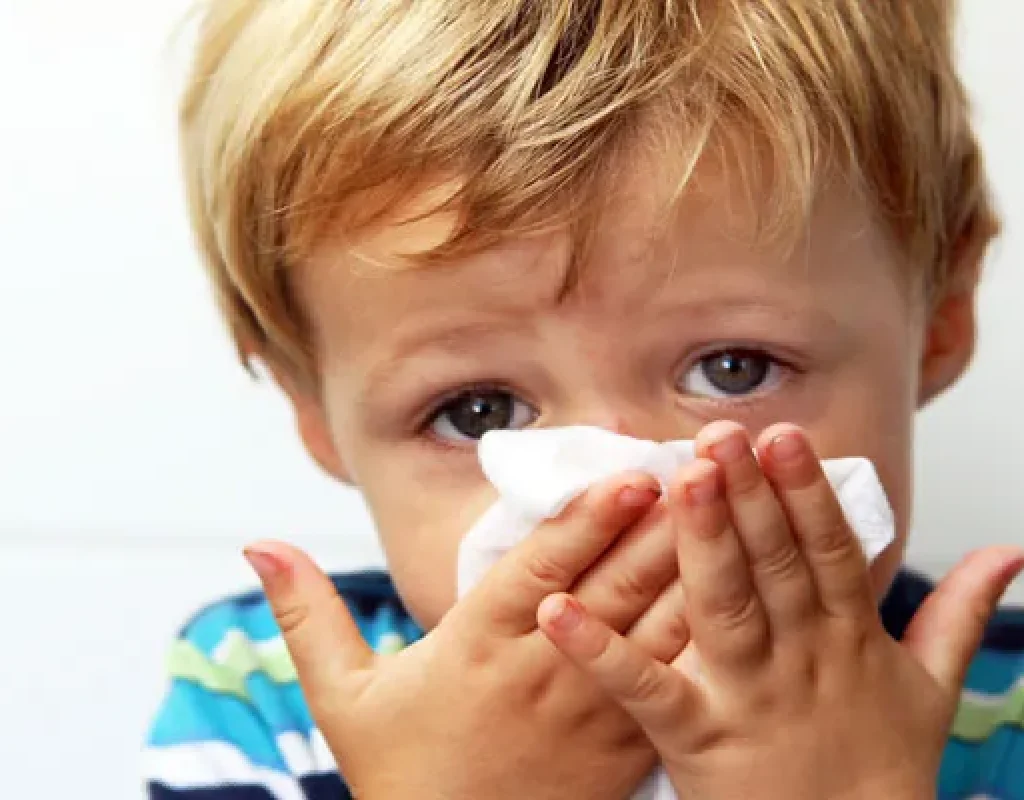What is influenza or “flu”?
Seasonal influenza, commonly known as “the flu”, is a virus that infects the respiratory tract (nose, throat and lungs). The flu season usually extends from October to April.
What are the symptoms of flu?
Symptoms of the flu include fever, fatigue, runny nose, congestion, cough, sore throat, headache and body aches. Many of these symptoms can also be caused by other viruses, although the flu tends to come on suddenly and be more severe. A test of your child’s nasal secretions can determine if your child has the flu.
Who gets the flu?
The flu can infect anyone but is more likely to cause severe illness in infants, young children, the elderly, and people with chronic medical conditions such as asthma, cancer, diabetes or heart disease.
How is the flu spread?
The flu is highly contagious. It is spread through an infected person’s secretions when they cough, sneeze or talk. People with flu can spread it to others up to 6 feet away. If you are exposed to the flu it will take 1-5 days to become sick.
How can I protect my child from the flu?
The most important method of prevention is ensuring that your child receives his or her flu shot each fall. The CDC recommends that everyone over 6 months of age receive the flu vaccine annually. Typically our office receives the vaccine in late August or early September. A notice will be posted on our website and Facebook page each year when we begin vaccinations for that season.
How is the flu treated?
- The treatment of flu is largely supportive. This means drinking plenty of fluids, getting lots of rest, and using acetaminophen (Tylenol) or ibuprofen (Motrin, Advil) for fever and/or pain control.
- Congestion and cough can be treated with nasal saline, bulb suction, humidifiers, frequent showers and honey (if over age 1 year of age).
- Cough and cold preparations should only be considered for use in children over 4 years of age.
- Because influenza is caused by a virus, antibiotics (which kill bacteria, not viruses) are not effective.
- There are antiviral medications, such as oseltamivir (Tamiflu), that may shorten the course somewhat but only if they are given in the first 48 hours of illness. These medications can cause significant gastrointestinal side effects. Therefore, we typically only use these medications in those babies and children at higher risk for severe illness.
What are the complications of the flu?
Flu can predispose your child to secondary bacterial infections such as ear infections or pneumonia. Therefore, it is important to bring your child to the doctor if they are having breathing difficulty, extreme fussiness, refusal to drink, decreased urine output (wet diapers), or high fever for 5 or more days. According to the CDC, more than 200,000 Americans are hospitalized each year from flu-related complications.
What is the stomach flu?
“Stomach flu” is a term sometimes used to describe illnesses with nausea, vomiting and diarrhea. These diseases are actually not caused by influenza and should more appropriately be called gastroenteritis.





